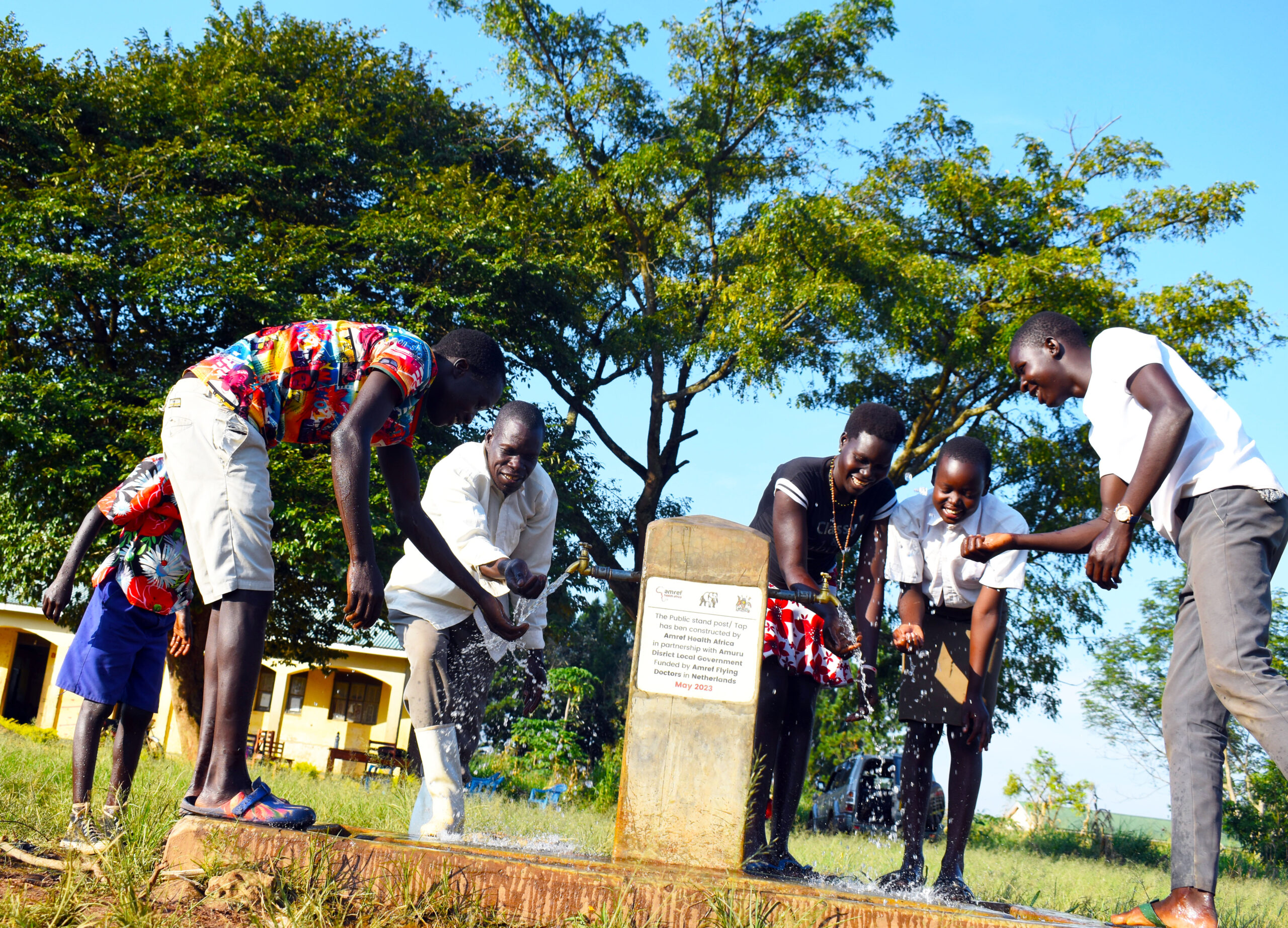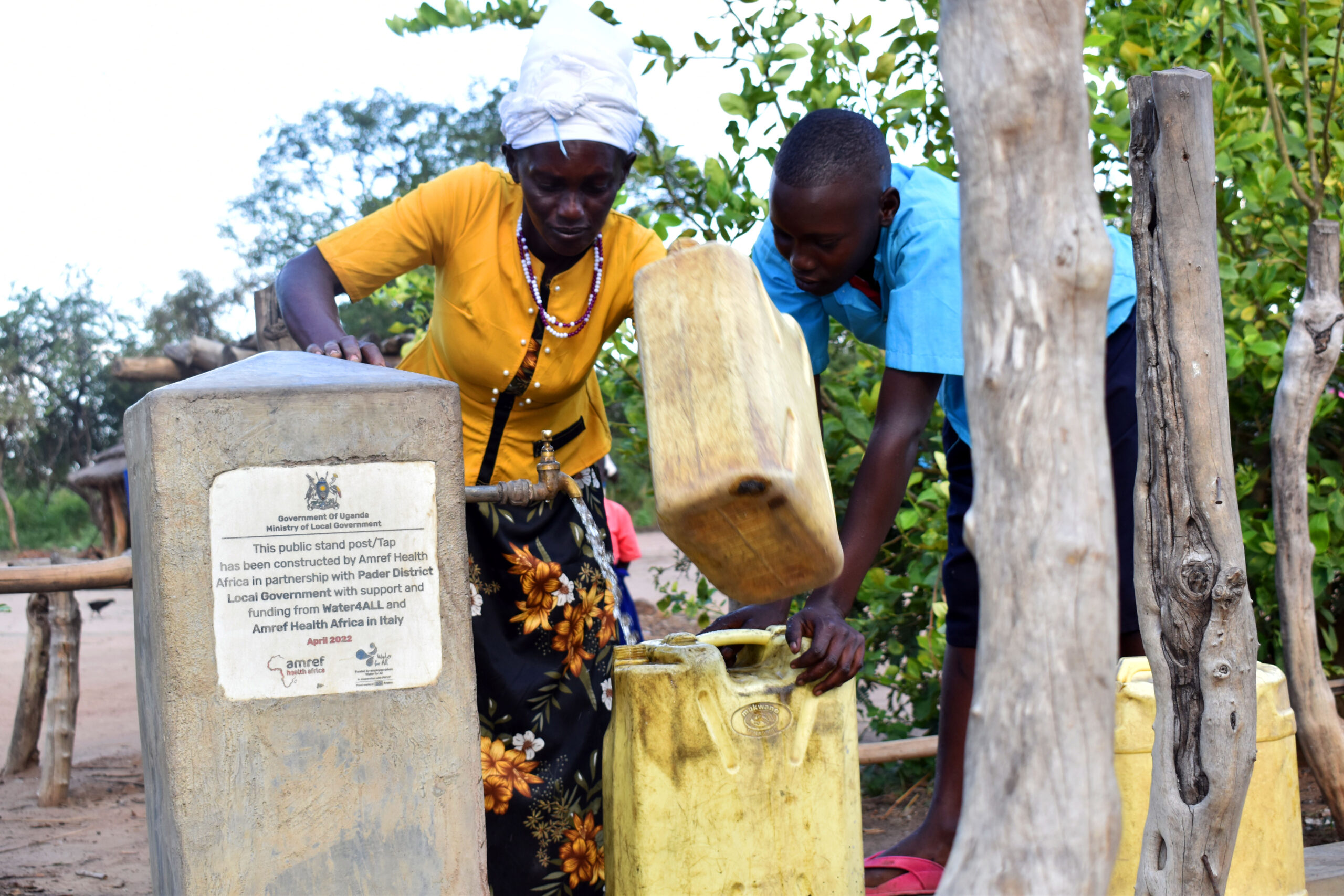Building Local Capacity: Aneno’s Journey to the National Laboratory
Monday, 10 April, 2017

When Aneno Irene Oriech obtained her Uganda Certificate of Education from YY Okot Memorial College in 2005 in Masindi, she dreamt of becoming laboratory technician. The career path that Aneno was to take is a science discipline which required both practical and theoretical training.
The youthful and ambitious Aneno, who is from Eastern Equatorial State, joined Maltesa School of Medical Laboratory Technicians in Rumbek, where she studied her dream course and obtained a certificate in medical laboratory technology in 2009. Despite the knowledge she received at the college, she did not get enough practical training due to lack of equipment and resources to purchase reagents.
After her studies, she joined Juba Teaching Hospital. Luckily for Aneno, when the country was struck by an outbreak of cholera in May 2014, she was seconded to the National Laboratory to be trained by Amref Health Africa.
With support from the World Health Organization and the national Ministry of Health, Aneno and other three lab technicians were trained by Amref Health Africa in bacteriology and parasitology culturing.
“At school we studied only basics; we did not do much practical work. We never collected samples and many things that should be done in a microbiology laboratory.”
“At school we studied only basics; we did not do much practical work. We never collected samples and many things that should be done in a microbiology laboratory,” said the soft-spoken Aneno.
The training was an eye-opener. For the first time Aneno interacted with modern lab equipment under tutorship of an experienced Health Africa microbiologist. “This was the first time I practiced my knowledge from school,” she said.
She added that the training was perfect. “Everything that we were taught was relevant and I learnt many skills. I understood everything and I hope to use this knowledge to improve my work,” she said.
Aneno will now be working at the National Referral Lab where she will do culturing in bacteriology and parasitology.
Aneno’s story reflects the inadequate skills challenge that faces South Sudan health professionals, besides insufficient numbers of health professionals.
According to the South Sudan Health Policy Document of 2012, the country has a critical shortage of all professional health cadres. Only about 10% of the civil service posts are filled by a qualified health worker, which translates to about 1.5 physicians and two nurses/midwifes for every 100,000 citizens. There are only 75 qualified laboratory technicians in South Sudan, according to the document.
These cadres are disproportionately based in urban areas. Consequently, health services are provided by less skilled health workers, known as Community Health Workers.
Despite the commitment of the Government of South Sudan to improve health care in the country, Amref Health Africa’s aspiration of training laboratory technicians from across the ten states in parasitology and bacteriology is being hampered by lack of funds.
Increased funding will enable Amref Health Africa to build the capacity of health professionals like Aneno and in that way improve health service delivery in the world’s youngest nation.
Amref Health Africa teams up with African communities to create lasting health change.



